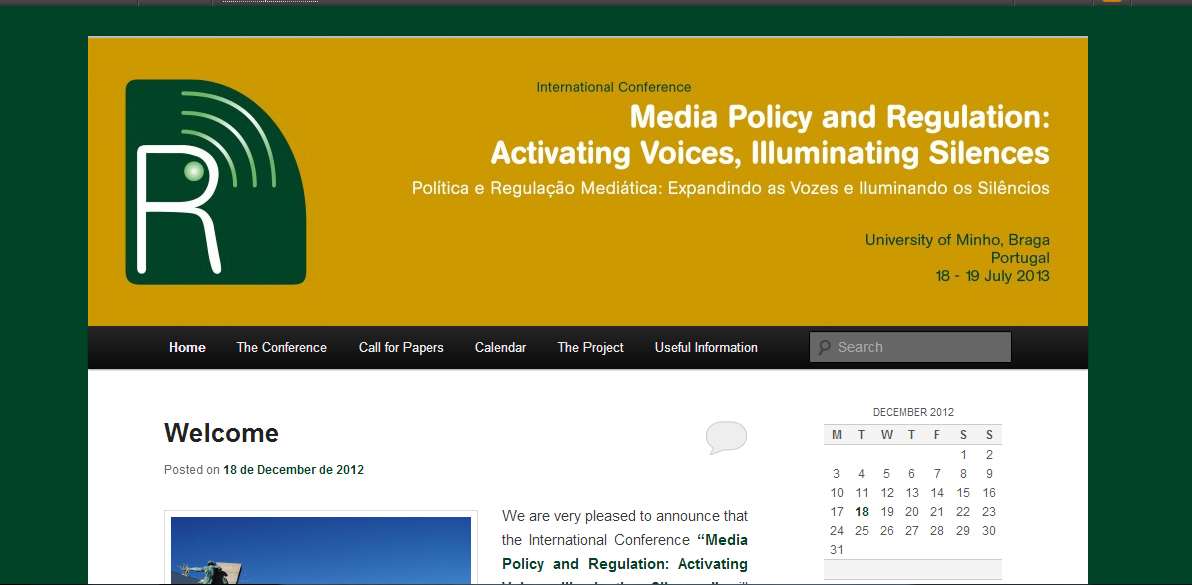Media Regulation in Portugal: The ERC’s Case
Supported by the Portuguese National Science Foundation (FCT)
In advanced democratic societies, states have set up one or various national media regulatory bodies and Portugal is no exception. If media public regulator is publicly founded, it should develop its work at the highest standard and make an effective contribution to the overall qualification of the media system. Firmly based in the assumption that the media (on and offline) matter to the overall social development in contemporary democratic societies and that (even if strongly desired) media self-regulation has not so far been sufficient to ensure quality and diversity, this project aims to analyze in depth the Portuguese media regulatory body, the ERC (Entidade Reguladora para a Comunicação Social) as an evolving entity in the national and international context.
Media governance, media policy and/or media regulation has grown rapidly as a specialist area of research around the world. Still, in Portugal, this scientific filed is incipient. Filling this gap is the primary rationale of this project. Why study the ERC once there is a multitude of national and international actors which play a role in the definition and implementation of media laws, rules, guidelines and practices? Because we believe that the ERC is an extraordinary entry point to examine the Portuguese media and the highly intricate economic, political, social and cultural context in which they perform. A profound examination of the ERC will unveil the social tensions regarding the media themselves and the regulatory function. Indeed, the ERC’s role must be analyzed taking into consideration the legacy of its predecessor: the AACS – Alta Autoridade para a Comunicação Social. The AACS was perceived as largely irrelevant mainly due to lack of political independence and inefficient procedures. This perception gave sustenance to public skepticism and to low public expectations regarding the state media regulatory bodies’ capacity to induce change. Furthermore, due to a long history of political authoritarianism and censorship, the ERC has to operate in a framework of suspicion and fear about the state’s intervention in the media sphere. So we see both the historical dimension and the international context (regional and global) absolutely crucial if one wants to consistently interpret what the ERC is doing (and not doing) and how.
This project’s specific research object is therefore ‘the ERC as a socially constructed media regulatory body’ and its objectives are as follows:
- to shed light on the conditions which have led to the setting up of the new media regulatory entity (ERC) in Portugal in 2005;
- to examine the ERC’s proposed and adopted models;
- to assess the role of national and international main actors in the definition of the present-day structure;
- to analyse the main functional provisions of the model, that is, what is it supposed to do and how does it compare with previous models;
- to critically scrutinize the ERC’s daily initiatives, decisions and dynamics, looking at what it has been doing and crucially how;
- to evaluate the ERC’s performance in relation to the conceptual model.






 Homepage
Homepage